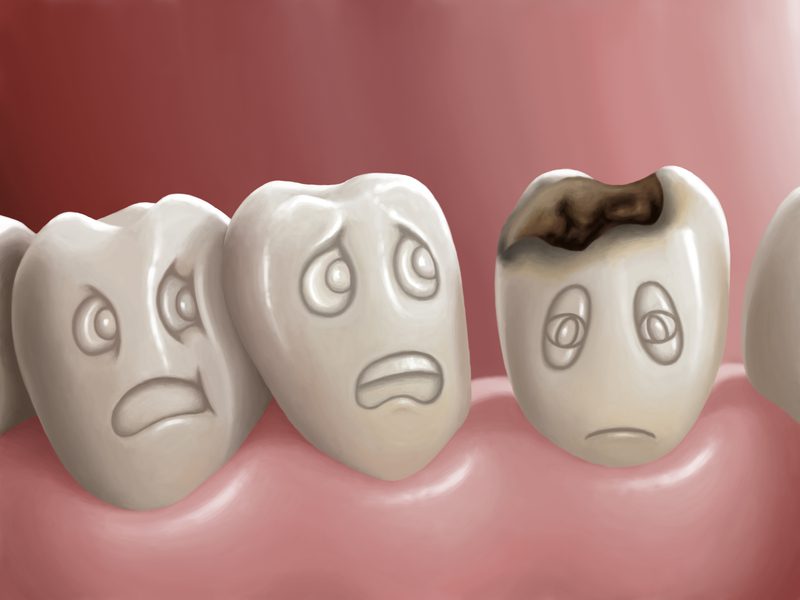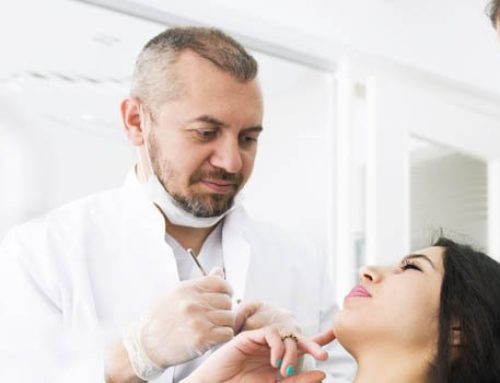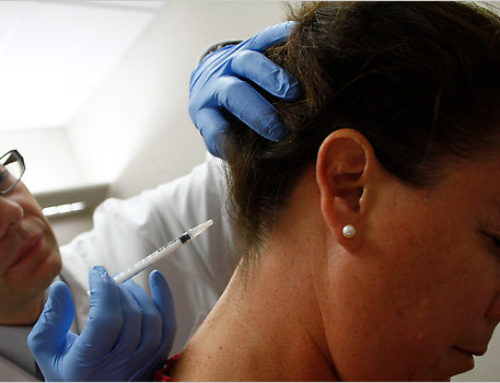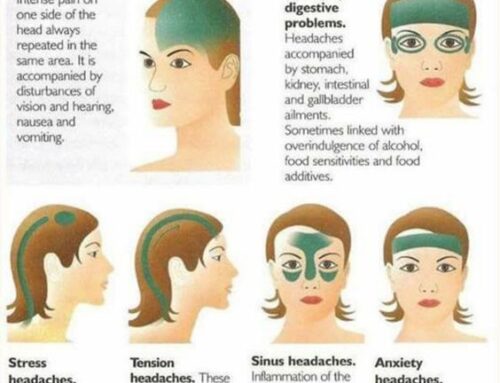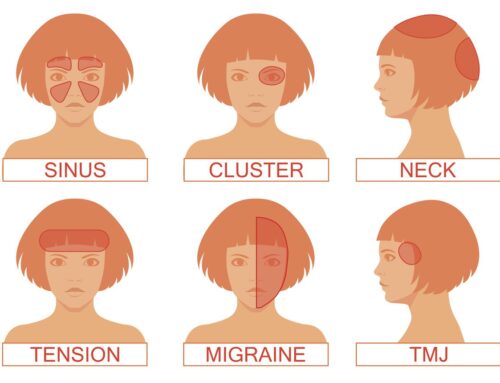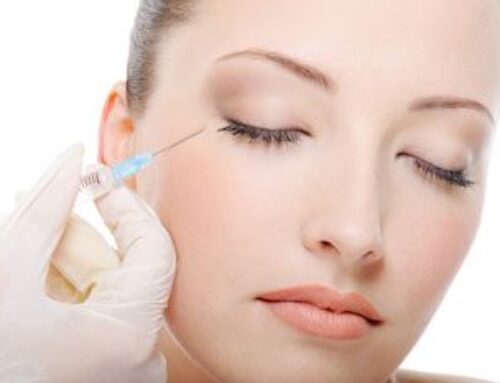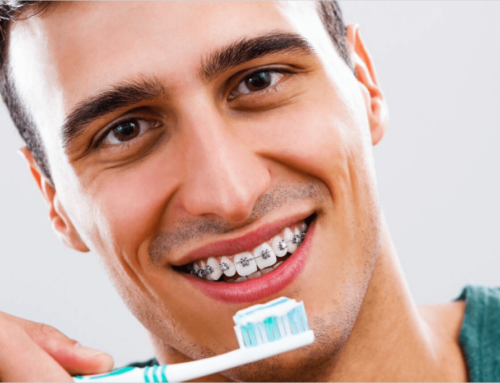6 Supplements Your Teeth Need for Remineralization
More and more people have been taking better care of their health, choosing the holistic method over traditional ones. This usually entails changing their diets and incorporating a new lifestyle that eliminates the need of seeing a doctor regularly for chronic conditions such as high blood pressure, back pain, adrenal fatigue, diabetes, etc.
Although this is wonderful news, there is always room to improve when it comes to your health. For instance, nobody really considers their oral health when they look at holistic dental options.
Most people go to see a dentist when they have pain in their mouth – usually from tooth decay or a cavity. They’ve learned that once a cavity has set up, there is nothing that can be done except get a filling.
This is something that needs to be changed.
Believe it or not, a filling for a small cavity may actually not be necessary. A filling means a dentist drills into the tooth and uses a synthetic substance to fill the hole. This substance could lead to deep teeth damage.
Rather than getting a filling for cavities, people should diet or add supplements to their diet to “bring life back to the tooth” or re-mineralize it. Yes, this sounds like a simple process to a complicated and serious issue. However, it’s important to understand that nutrition is key to most teeth problems and reversing those issues too.
What is remineralization? It’s an extremely effective process in which the body naturally goes through to keep the teeth strong and healthy. Like every bodily process, it’s important that you feed it properly. And, like other parts of your body, your teeth need an additional nutritional boost. Thankfully, several supplements can help in the remineralization process.
6 Key Supplements That Can Help Re-Mineralize Your Teeth
Calcium
Most people wouldn’t be surprised to see calcium make the list of important supplements that can help with teeth remineralization. Why is that? Calcium helps to strengthen bones and keep them healthy. This nutrient is the key building block to teeth and bones and helps in the re-mineralization process.
The problem with calcium is that the body doesn’t always easily absorb it. And, when it’s not, it’s not usable. Plus, when not supplemented with other nutrients – vitamins D3 and K2 – it can end up in places it doesn’t need to go. These other nutrients help direct the calcium where the body needs it.
How can you properly use calcium? Consume 1,000 milligrams of calcium daily along with the listed supplements to help with teeth remineralization
Vitamin D3
D3 is regarded as an important nutrient for your health. However, you may be surprised to learn that it’s not really a vitamin but a hormone. Vitamin D3 helps with the body’s organs and tissues.
When you’re looking to re-mineralize your teeth, the fat-soluble hormone is necessary to aid calcium in the absorption process and balance out the minerals in the body. These processes are important to help with bone and teeth formation and repair. They are also needed to help teeth keep their structure, which can last your entire life if properly taken care of.
Bear in mind that more than half of the world’s population is vitamin D3 deficient. Why though?
- People don’t get as much sunshine as they used to – either from spending all their time inside and using a plethora of sunscreen.
- An overconsumption of phytic acid, which hinder the absorption of vitamin D. The foods that are loaded with phytic acid include almonds, beans, grains, hazelnuts, sesame seeds and soybeans.
Consume at least 1,000 IU of vitamin D3 each day.
Vitamin K2
Combining vitamin D3 with vitamin K2 can help boost the absorption and distribution of calcium. Vitamin D3 works to absorption the calcium; vitamin K2 can direct where the calcium can go. K2 is also necessary to stimulate osteocalcin, the proteins necessary for dentin matrix that help with growth and repair. It also works in conjunction with matrix-GLA proteins to aid in teeth re-mineralization.
What’s the recommended daily dose of vitamin K2? You should take at least 90 micrograms each day.
Magnesium
Magnesium is necessary for two things – teeth’s structural development and helping the body successfully absorb calcium. Bear in mind that an overabundance of calcium, vitamin D and phosphorus can cause the body’s magnesium levels to drop. This can impede the remineralization process. Be sure to consume these supplements in equal amounts.
Like vitamin D, many people don’t have enough magnesium in their body. Therefore, you need to add more of it to your diet.
Be sure to take up to 400 milligrams of magnesium each day along with the other nutrients mentioned above.
Collagen
Your teeth endure wear and tear, causing them to break down. However, remineralization can help rebuild and strengthen your teeth. Remember, your teeth are comprised of various parts – bone, cementum, dentin and enamel, which have both organic and inorganic parts.
Collagen is a key aspect in your teeth. Type 1 collagen is seen largely in the organic parts of the bone, cementum and dentin. Type XVII is important for the formation of enamel and, a lack of it, means your teeth could become malformed.
Collagen is typically seen in animal products such as organ meats and connective tissues – something people don’t eat a lot of. This is why people are encouraged to use collagen supplements. Here’s a bonus about collagen: it helps with gut health. With the high glutamine within the collagen, it helps improve nutrient absorption and repair leaky gut syndrome.
There are an array of collagen sources, but the best source of collagen is from grass-fed cattle sources because it has the highest level of type 1 collagen.
Oral Probiotics
The majority of people have heard of gut microbiome, but not many understand that there is oral microbiome – a key aspect of saliva. According to various studies, people with a high amount of inorganic components such as calcium phosphate and high acidic pH increases a person’s chance of developing gum disease.
Probiotics can help boost the amount of organic compounds in the saliva, which hinders the inorganic compounds and help with the following things:
- Better breath
- Decrease gingivitis symptoms
- Inflammation reduction
- Prevention of oral cancer
Probiotics can help destroy the dangerous bacteria that lead to tooth decay and stop the remineralization process.
With oral probiotics, you need to use them like you would gut probiotics. Choose a product that comes from a reputable manufacturer that uses only the best strains.
Fix Your Diet First To Prevent Cavities
Good dental health means using cavity prevention techniques. It also means steering clear of foods that can destroy your teeth and hinder remineralization. Consume foods that help with the remineralization process such as dark, leafy greens and healthy fats. If you can’t consume enough of those, you could add supplements to your diet.
If your cavity is causing you an excessive amount of pain or it’s really deep and affecting the root, it may be in your best interest to get a filling. That doesn’t mean you shouldn’t change your diet, but don’t just rely on fillings to always fix your teeth.
If you’re already taking a holistic method to improve your overall health, it’s time to implement one for your oral health too. Add the above supplements to your diet, and you could stop cavity development and reverse any damage already done by cavities.
Appointment Request
If you’re interested in any of our procedures, and would like to meet with one of our dentists to discuss options, costs and get additional information, complete this short form and we’ll give you a call to arrange for a no-obligation appointment at our Barrie clinic.
